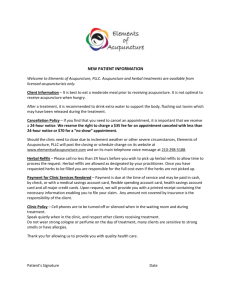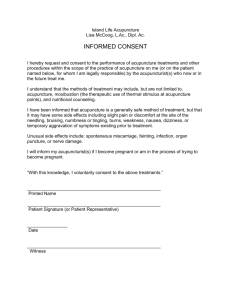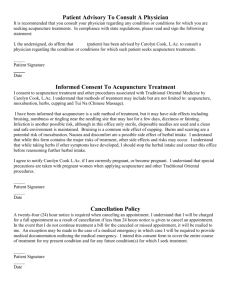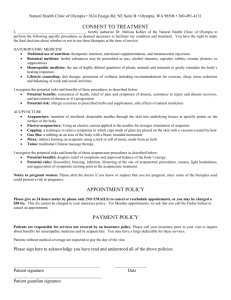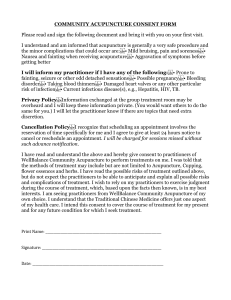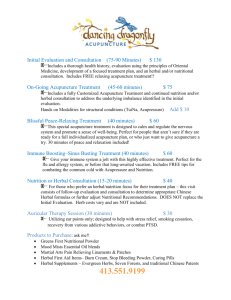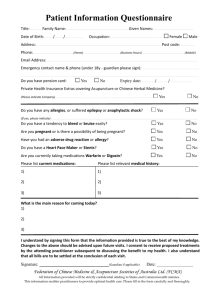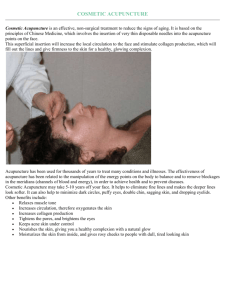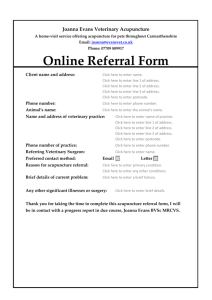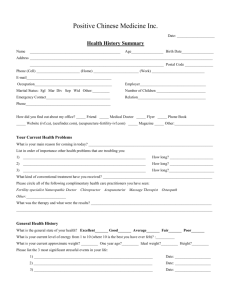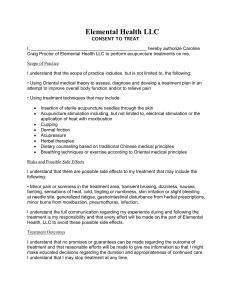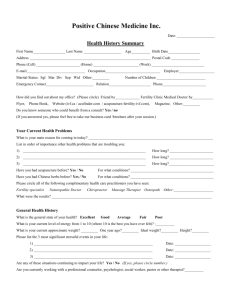Acupuncture: Acupuncture dates back over 9000 years to ancient
advertisement
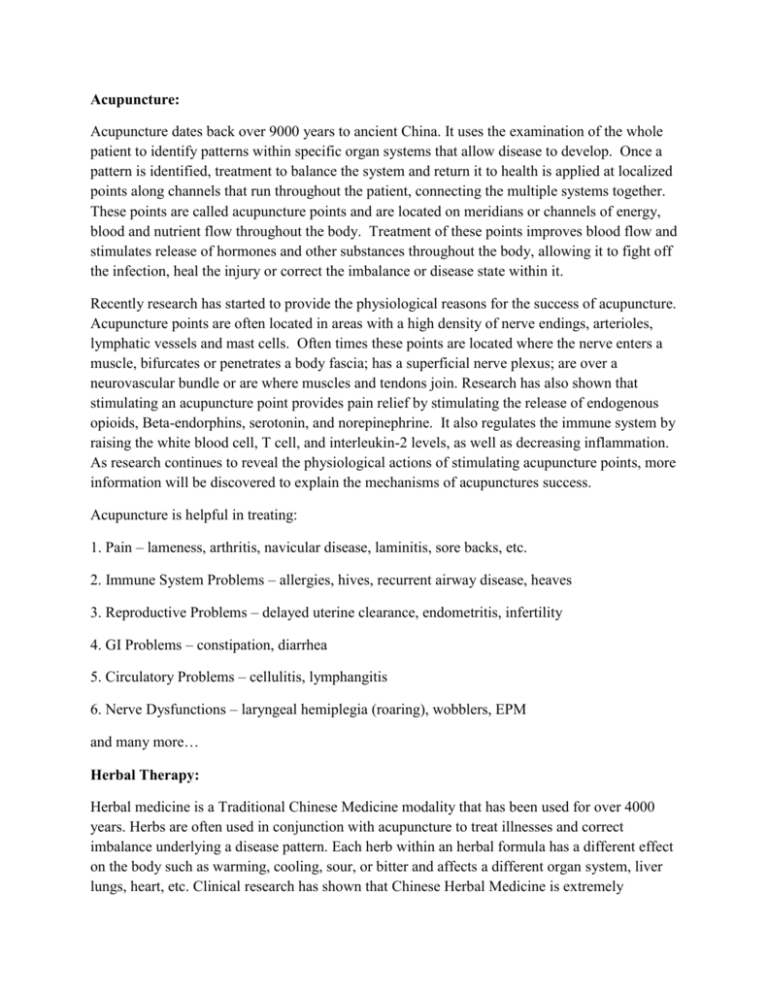
Acupuncture: Acupuncture dates back over 9000 years to ancient China. It uses the examination of the whole patient to identify patterns within specific organ systems that allow disease to develop. Once a pattern is identified, treatment to balance the system and return it to health is applied at localized points along channels that run throughout the patient, connecting the multiple systems together. These points are called acupuncture points and are located on meridians or channels of energy, blood and nutrient flow throughout the body. Treatment of these points improves blood flow and stimulates release of hormones and other substances throughout the body, allowing it to fight off the infection, heal the injury or correct the imbalance or disease state within it. Recently research has started to provide the physiological reasons for the success of acupuncture. Acupuncture points are often located in areas with a high density of nerve endings, arterioles, lymphatic vessels and mast cells. Often times these points are located where the nerve enters a muscle, bifurcates or penetrates a body fascia; has a superficial nerve plexus; are over a neurovascular bundle or are where muscles and tendons join. Research has also shown that stimulating an acupuncture point provides pain relief by stimulating the release of endogenous opioids, Beta-endorphins, serotonin, and norepinephrine. It also regulates the immune system by raising the white blood cell, T cell, and interleukin-2 levels, as well as decreasing inflammation. As research continues to reveal the physiological actions of stimulating acupuncture points, more information will be discovered to explain the mechanisms of acupunctures success. Acupuncture is helpful in treating: 1. Pain – lameness, arthritis, navicular disease, laminitis, sore backs, etc. 2. Immune System Problems – allergies, hives, recurrent airway disease, heaves 3. Reproductive Problems – delayed uterine clearance, endometritis, infertility 4. GI Problems – constipation, diarrhea 5. Circulatory Problems – cellulitis, lymphangitis 6. Nerve Dysfunctions – laryngeal hemiplegia (roaring), wobblers, EPM and many more… Herbal Therapy: Herbal medicine is a Traditional Chinese Medicine modality that has been used for over 4000 years. Herbs are often used in conjunction with acupuncture to treat illnesses and correct imbalance underlying a disease pattern. Each herb within an herbal formula has a different effect on the body such as warming, cooling, sour, or bitter and affects a different organ system, liver lungs, heart, etc. Clinical research has shown that Chinese Herbal Medicine is extremely effective in treating chronic issues (reproduction, cardiology, oncology, etc) as well as respiratory problems and sports injuries.
